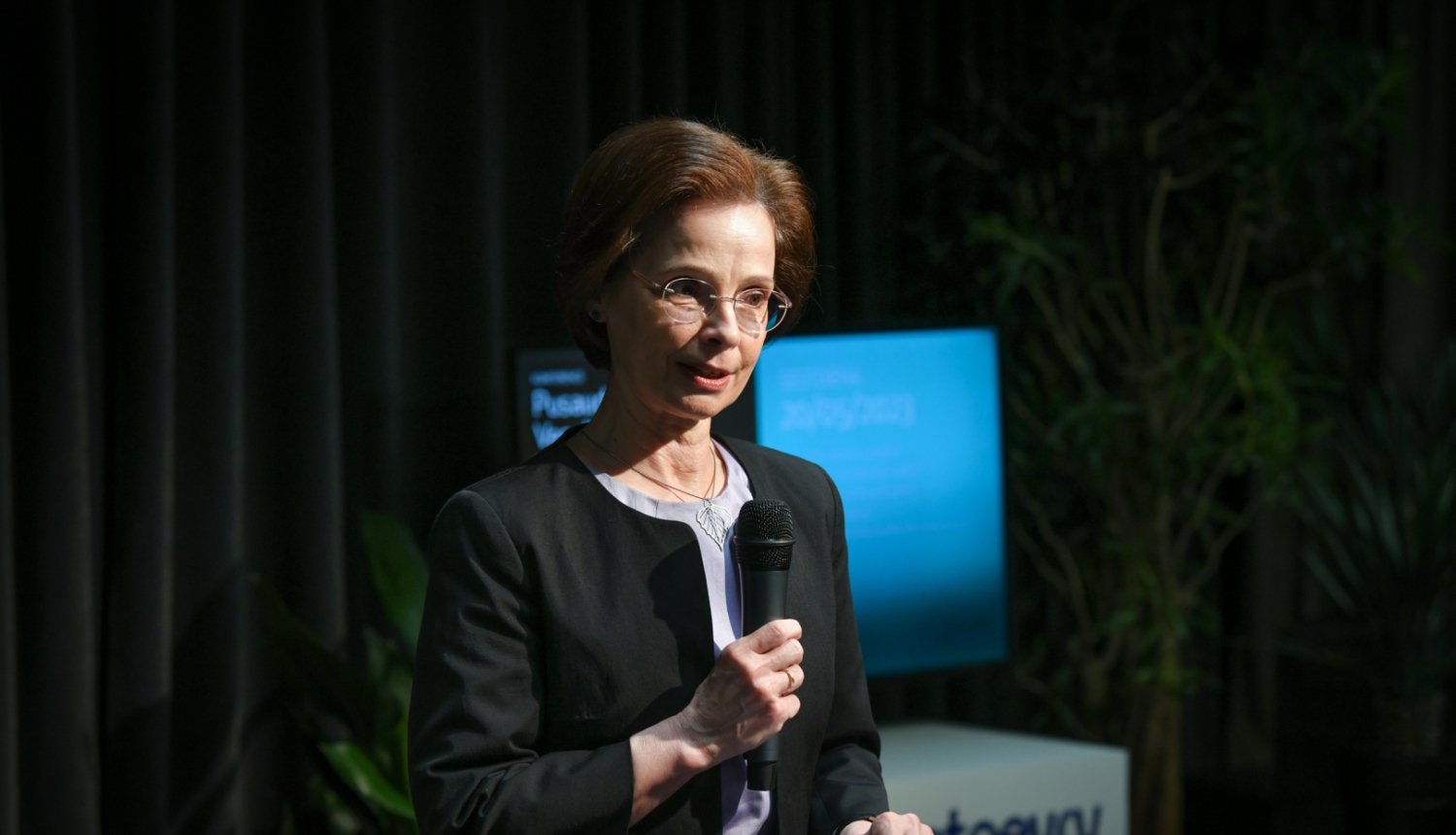Dear Mr. Nils Konstantinovs!
Dear conference organizers and participants!
Good morning, dear young people!
I will start my speech with a quote:
"Young people now love luxury, have bad manners and contempt for authority. They show disrespect for elders and love chatter in place of exercise.
Young people no longer rise when elders enter the room. They contradict their parents, chatter before company, gobble up dainties at the table, cross their legs, and tyrannize their teachers".
I have not checked the actual source of the quote, but it is attributed to the ancient Greek philosopher Socrates. It is clear that adult frustration with adolescent behaviour has always existed. But the question is whether Socrates and all those who thought like him later understood the deeper causes of young people's behaviour.
The teenage years are a period in a person's life when a variety of changes take place that are expected of the young person himself but at the same time are surprising to him.
Physiologically and hormonally, there is a transition from childhood to adulthood. Hormonal cycles do not yet function perfectly. External and internal stress factors can easily "throw" the hormonal cycle out of balance. These hormonal fluctuations can, in certain situations, lead to adolescent misbehaviour.
Emotionally, the adolescent doubts how he sees himself, how he would like to see himself, how other people perceive him, and how he would like others to perceive him.
The sense of self does not match the emotions shown to the adolescent by peers. This dissonance creates inner insecurity and frustration.
In social life, friends' role increases, and family's importance decreases. Such behaviour can cause confusion and resentment within the family.
Intellectually, the adolescent is preoccupied with thoughts about his own, closest persons’, but often also about the future of the entire humanity.
In recent years, there have been many crises in society. There is a generation that is growing up in constant crises.
There was the Covid pandemic with severe restrictions, the death of loved ones, and a change in routines.
A war is going on near us, now in its second year. Every day on the news we learn about victims who were killed, injured, raped, and tortured. About refugees forced to flee their homes and about destroyed cities, schools and hospitals.
Global climate change is turning the world into a more human-unfriendly environment. An adolescent – a young human being - will experience adverse changes in his or her lifetime.
Social media, which initially promised to bring people closer, has shown its dark side. They are often used for mobbing, humiliation, and ridicule, and have a toxic atmosphere.
It is surprisingly easy to access intoxicants that promise pleasure and oblivion for a while but have negative physical and psychological consequences in the long term.
I have mentioned just a few of the problems of adolescence and the crises in our daily lives.
I am sure you will have a chance to talk about them and others in greater depth today. You will also hear the perspectives and solutions of experts and the adolescents themselves. Communication is very important. Lack of communication is the cause of misunderstandings, whereas open communication can be the solution.
I am a gynaecologist and obstetrician by profession, so I deal with the beginning of life and the first moments of a human being in this world. I agree that many adolescents are struggling and need help now.
However, the reasons for today's difficulties may have arisen in early childhood.
Therefore, I would be delighted, both professionally and personally, if:
- expectant mothers, but also expectant fathers, behave responsibly during pregnancy;
- the new family experiences a professionally and empathetically managed birth without violence in any form;
- childhood would be spent with loving parents and with an extended family that would protect the child from serious dangers, while strengthening the child's natural curiosity, the joy of movement and self-confidence;
- the child receives all recommended medical examinations, including vaccines; prevention is always better than treatment of the disease;
- the school and teachers inspire students to explore the world in all its diversity;
- young people would have an attractive environment in which to meet friends.
During the Covid pandemic, we all became more familiar with digital technologies. We realised that it could be used for different purposes. Digital technology has come into our daily lives and is here to stay.
There is a shortage of specialists in all areas of medicine. Patients experience long queues for consultations with specialists, especially in rural areas. This is causing frustration on both sides.
So, let's be creative and use digital tools! Young people are already using different sources of information compared to the older generation.
They use WhatsApp groups, text messages, emails, and apps. Social media have replaced newspapers, letters and also public media such as radio and television.
Therefore, remote conversations with a specialist seem self-evident for our target audience today.
Similarly, the therapy process and monitoring of necessary medication use can be organised remotely. The specialist will understand when a remote consultation is sufficient and when the patient needs a face-to-face visit.
Used wisely, always respecting the security of the patient's personal data, digital tools can make it easier for the specialist to meet the patient, advise the patient and, in the best case, prevent the problem from worsening.
Dear conference participants!
I wish you all lively and interesting discussions, new insights and the strength to implement them.
Thank you!





